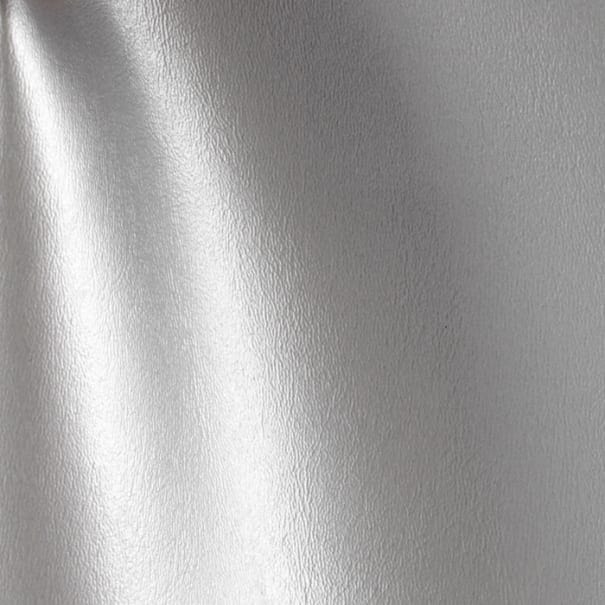Your backyard pool sees a lot of regular splashing, foot traffic, and weather - so it's easy to see why its tiles might crack. Environmental stressors degrade material integrity over time, while sudden physical impacts may cause breakage as well. This is even true for options like beneficially-durable porcelain.
Pool tile replacement is a big undertaking, so you’ll want to avoid it wherever possible. It's also expensive. If you've decided to embrace an unconventional pool design as seen in this year's pool tile trends, a pool tile buying guide can help you find the right tiles.
Keep reading to learn why cracked pool tiles develop, when and how they can be repaired, and what you can do to prevent pool tile cracking in the first place.

Common Causes of Cracked Pool Tiles
That iridescent glass tile infinity pool design trend you saw in a magazine may have looked good before, but now it’s all cracked. What happened? There are a number of possible explanations:
1. Improper Installation
If you don't have a professional install your pool tiles, there's a high chance that they were not set correctly or with the appropriate adhesive and grout. Tiles that are not fully adhered to a pool's surface are more susceptible to cracking.
2. Shifting Ground
The ground around your pool will naturally shift with changes in temperature and moisture levels. Back to the importance of proper installation, expansion joints need to be utilized around the perimeter of your pool to account for this shifting. If these are not in place, the pressure can cause tiles to crack.
3. Extreme Temperatures
Freezing winters and scorching summers cause tiles to contract and expand at a rapid pace. Less durable materials are prone to split and crack under these conditions.
4. Water Chemistry Imbalance
Maintaining proper water chemistry is essential for the health of your pool, but it also affects the durability of its tiles. If the water is too acidic or alkaline, it can lead to chemical reactions that weaken the tiles and cause them to crack.
5. Physical Damage
Accidents happen, and unfortunately, pools are not immune to them. Heavy objects falling onto the tiles or frequent rough use can cause cracks to form.
Improper Maintenance
Pool maintenance is one of those annoying jobs that you just have to force yourself to do as a pool owner. It's important to both swimmer safety and the overall lifespan of waterline pool tiles.
To Fix or Replace Cracked Pool Tile
Getting your pool back onto this year's list of best pool designs comes down to two remedial options: tile repair and tile replacement.
Tile Repair
If the damage is minimal, you may be able to fix it yourself with a DIY patch kit. These kits typically include epoxy or waterproof cement that can be used to fill in small cracks. However, this method is not a long-term solution and may need to be repeated regularly.
Professional tile repair services are also available if the damage is more extensive. A pool specialist will assess the severity of the crack and use specialized tools and materials to patch it up. This option can be more costly but is a more permanent solution compared to DIY repairs.
Tile Replacement
If the crack is too large or runs along the entire length of the tile, it may be necessary to replace it altogether. This involves removing the damaged tile and replacing it with a new one. It's important to use tiles specifically designed for swimming pools, as they are able to withstand constant exposure to water and chemicals.
Hiring a professional pool technician is recommended for tile replacement, as it can be a delicate and time-consuming process. The technician will also ensure that the new tile is properly sealed to prevent any future cracks.
How to Prevent Your Pool Tiles From Cracking
Of course, it's preferable to not have to deal with the problem of cracked pool tiles in the first place. But many causes can be prevented by following these tips:
Select the Right Tile Materials
While tile color selection may not matter to the integrity of pool tiles, material does. Whether you have white, blue, green, aqua, or mosaic tiles, they should be made to last in harsh environments. Pool tiles face a uniquely challenging storm of 24/7 water, temperature changes, and chemical exposure. To prevent cracking, choose pool tile materials specifically designed for swimming pools. Reading up on how to properly use glass tiles in pool tile design is equally important to minimize the potential for cracks.
Pay for Quality
You've heard the saying "You get what you pay for," and it's especially true when it comes to pool tiles. Cheaper options may seem like a good deal, but they are often made with inferior materials that are more prone to cracking and damage. Higher-quality tiles last longer and will save you money in the long run by reducing the need for constant repairs or replacements.
Maintain Your Tiles
Proper pool tile maintenance is key to keeping your swimming pool looking and functioning at its best. Regular cleaning and upkeep help prevent the buildup of minerals, algae, and other debris that can cause damage over time. Checking for cracks and chips in your pool tiles can also help catch any potential issues early on before they become bigger problems.
Explore Our Collection of Pool Tiles
Find the perfect pool tile for your backyard space and you won't need to worry about unnecessary replacements - whether that's for repair or incohesive design. Oasis Tile's large inventory of pool tiles is the perfect combination of quality and value. Shopping our best-selling pool tile collection, you're sure to end up with a final product that both looks great and lasts a lifetime. Explore the diverse ocean of options we offer by ordering samples today.


























